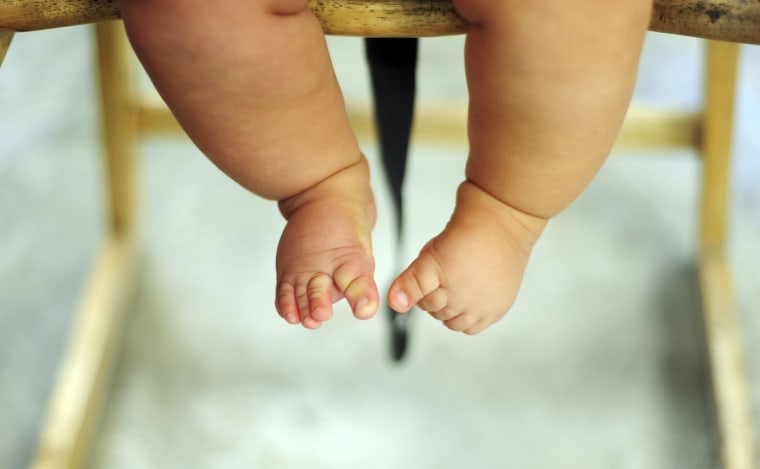A maternal last name is the surname inherited from one’s mother’s family. It is a family name passed down through the female lineage.
In many cultures, individuals take on both their mother’s and father’s last names, creating a unique combination. However, the tradition of using only the father’s surname is still prevalent in numerous societies. The use of maternal last names can reflect a matriarchal society, provide familial continuity, and honor the maternal lineage.
Understanding and acknowledging the importance of maternal last names contributes to affirming women’s role in family heritage and fostering equality. We explore the significance of maternal last names, their cultural variations, and how they influence naming customs worldwide.
An Introduction To Maternal Last Names
A maternal last name refers to the family name inherited from one’s mother. In many cultures and societies, a person’s last name is derived from their father’s lineage. However, maternal last names are gaining recognition and importance in contemporary times. It is a way to honor and acknowledge a person’s maternal lineage, ensuring their heritage is preserved.
Maternal last names are surnames that are passed down through the mother’s side of the family. Unlike paternal last names, which are typically inherited from the father, maternal last names link individuals to their mother’s ancestral roots. This naming practice allows individuals to embrace and identify with their maternal heritage.
Maternal lineage holds significant importance as it reflects a person’s maternal ancestry, culture, and traditions. By preserving and embracing maternal last names, individuals can maintain a connection to their past, ensuring the stories and legacies of their maternal line are not forgotten. Moreover, maternal inheritance plays a crucial role in familial and property rights, contributing to the overall understanding of one’s identity and heritage.
History And Cultural Significance
Throughout history, the concept of a maternal last name has varied and evolved across different cultures. In some societies, it is common for a person to inherit their last name from their mother rather than their father. This naming tradition holds historical and cultural significance, reflecting the emphasis on maternal lineage and kinship ties. It also serves as a way to preserve the mother’s family name and lineage within the family unit.
Across cultures, the evolution of last names has been influenced by various factors, including social norms, legal requirements, and historical events. For example, in some European countries, children traditionally take their father’s last name, while in Hispanic cultures, it is common for individuals to carry both their father’s and mother’s surnames, which are passed down through generations. In other regions, such as certain parts of Asia, clan or family names hold prominence over individual surnames.
Understanding the different naming traditions and their significance provides insights into the rich tapestry of human heritage and the importance placed on familial ties and ancestry.
Maternal Vs Paternal Last Names
The maternal and paternal last names refer to the surnames inherited from a person’s mother and father, respectively. Though both serve as identifiers, they differ in their origins and inheritance patterns.
The maternal last name is obtained from the mother’s side of the family. It is typically acquired at birth and passed down from generation to generation through the mother’s family line. For instance, if a woman named Sarah Jones marries a man named John Smith, their child might have the last name Smith as the paternal name and Jones as the maternal name.
The paternal last name is obtained from the father’s side of the family. Similarly, it is acquired at birth and passed down from generation to generation through the father’s family line. In the above example, if John and Sarah’s child were to inherit the paternal last name, their child’s last name would be Smith.
| Maternal Last Names | Paternal Last Names |
|---|---|
| Obtained from the mother’s side of the family | Obtained from the father’s side of the family |
| Passed down through the mother’s family line | Passed down through the father’s family line |
| Typically acquired at birth | Typically acquired at birth |
)
Credit: www.business-standard.com
Matrilineal Societies And Maternal Last Names
The concept of maternal last names is prevalent in matrilineal societies, where lineage and inheritance are traced through the female line. In these societies, the mother’s family name is passed down to the children, rather than the father’s. This practice is found in various cultures around the world, including the Mosuo in China, the Minangkabau in Indonesia, and the Khasi in India, among others.
One unique feature of maternal last name usage in these societies is the emphasis on maternal ancestry. The matrilineal surname serves as a way to preserve the identity and heritage of the mother’s lineage. It helps to strengthen kinship ties and maintain a sense of continuity and belonging within the community.
In addition, in matrilineal societies, women typically hold higher social status and play a significant role in decision-making processes. The use of maternal last names reflects the importance and honor given to women in these societies, highlighting their contributions and position within the community.
| Examples of Matrilineal Societies |
|---|
| Mosuo |
| Minangkabau |
| Khasi |
Matrilineal societies and the usage of maternal last names provide a fascinating insight into different cultural practices and the significance of women in these societies. It showcases how the naming system can reflect and reinforce social structures and values.
Challenges And Controversies
Maternal last names pose several legal and administrative difficulties. One of the primary challenges is the inconsistency in regulations and practices across different countries and regions. In some jurisdictions, the use of maternal last names is not recognized or is subject to extensive bureaucratic procedures. This can lead to complications when trying to establish legal identities, obtain official documents, or navigate administrative processes.
Furthermore, the use of maternal last names can also create confusion in certain situations. For example, tracking genealogy or family history may become more complex, as the maternal lineage may be obscured or difficult to trace.
Moreover, the inclusion of maternal last names can fuel debates and opinions on traditional naming conventions and gender roles. Some argue that using maternal last names is a way to challenge patriarchal norms and promote gender equality. However, others believe that it can disrupt family traditions and create additional societal divisions.
| Challenges: | Inconsistent regulations | Complications in establishing legal identities | Confusion in tracking genealogy |
| Controversies: | Debates on traditional naming conventions | Gender equality vs. family traditions |
Maternal Last Names And Gender Equality
Maternal last names have gained traction as a means to promote gender equality in society. By adopting a woman’s last name as the family name, traditional gender roles and societal norms around the family structure are challenged. This shift not only challenges the perception of women as property that has been prevalent historically, but also promotes the idea that men and women share equal responsibility and importance within a partnership. The decision to use a maternal last name can have a significant impact on breaking down gender stereotypes and fostering a more equitable society.
Furthermore, maternal last names play a crucial role in reshaping the perception of women’s identity. It emphasizes the importance of a woman’s ancestral heritage and helps preserve and recognize her own family lineage. This recognition is particularly important in patriarchal societies where women’s identities are often subsumed within those of their husbands. By using a maternal last name, women assert their individuality and contribute to a more diverse and inclusive understanding of personal and family identities.
| Impact of Maternal Last Names on Gender Equality: |
| Challenges traditional gender roles |
| Helps break down gender stereotypes |
| Promotes shared responsibility within partnerships |
| Recognizes women’s ancestral heritage |
| Asserts women’s individuality |
| Contributes to a more inclusive understanding of personal and family identities |
Practical Considerations
When considering the maternal last name, there are practical aspects to keep in mind. One option is hyphenation, where individuals combine both their maternal and paternal last names with a hyphen. This allows for a clear representation of both family names and preserves family heritage.
Another possibility is combining last names, which involves merging the maternal and paternal surnames to create a new last name for the individual or couple. This option provides a unique identity while honoring both family lineages.
Additionally, there are options for changing or adopting maternal last names. Some individuals may choose to legally change their last name to their maternal name or a combination of both last names. Others may opt to adopt their maternal last name without changing it legally.
| Hyphenation | Combining Last Names | Changing/Adopting Maternal Last Name |
|---|---|---|
| Preserves both family names | Creates a unique identity | Recognizes maternal lineage |
| Can be easily identified | Maintains connection to both families | Expresses personal preference |
| May be lengthier | Requires discussion and agreement | May require legal processes |
Maternal Last Names In The Modern World
The concept of maternal last names has evolved significantly in the modern world. Today, many individuals have adopted the practice of using the maternal last name as part of their identity. This trend is seen in various cultures and geographies. By using the maternal last name, individuals can honor their mothers’ lineage and heritage, and it also promotes gender equality by challenging the traditional patriarchal naming convention. Moreover, having a maternal last name can serve as a way to highlight the importance of maternal ancestry and foster a sense of belonging to both family lines.
Currently, there are diverse practices regarding maternal last names. Some individuals choose to hyphenate both their maternal and paternal last names, while others opt to use their maternal last name as their middle name. There are also cases where individuals completely replace their paternal last name with their maternal last name. These practices reflect the growing significance of maternal lineage and the desire to create a personal and unique identity.
The future prospects for maternal last names are promising. As societal norms continue to evolve, more people are likely to embrace the idea of incorporating the maternal last name into their official identity. This shift can contribute to a more inclusive and equal society, where maternal ancestry is recognized and celebrated on par with paternal heritage.
Frequently Asked Questions Of What Is A Maternal Last Name
What Is A Maternal Last Name?
A maternal last name refers to the family name inherited from one’s mother. It is a common practice in many cultures where children adopt their mother’s surname instead of their father’s. This can help maintain maternal family ties and honor the mother’s lineage.
Conclusion
To sum up, a maternal last name is a surname that is passed down from the mother’s side of the family. It is a way to honor the maternal lineage and maintain a connection to the maternal ancestors. Embracing a maternal last name can be a meaningful way to celebrate the rich heritage and history that comes from both sides of our family.
This practice is gaining popularity as individuals seek to honor and preserve their maternal lineage. So, whether you decide to keep your maternal last name or incorporate it into your existing name, the choice is yours to celebrate the powerful and influential women in your family.








